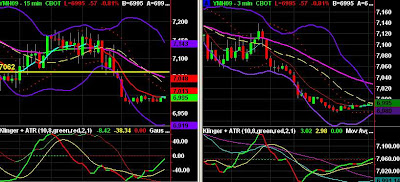Here are three articles on the subject. One is from the Wall Street Journal, a second is from Econbrowser, and the third is the executive summary of a study commissioned by Informa Economics.
From the Wall Street Journal:
"It was said to be the year of speculators gone wild. Seemingly everyone in Washington, including Barack Obama and John McCain, decided that oil prices were soaring because profiteers and middlemen were manipulating the futures markets. "Speculators" were spotted everywhere this side of the grassy knoll.
"The only problem is that there's no evidence to support the conspiracy theories..."
Here is the full story. From Econbrowser by Scott Irwin (the full article is a quite lengthy and exhaustive rebuttal of the opinion touted by politicians of Michael Masters), who holds the Laurence J. Norton Chair of Agricultural Marketing at the University of Illinois:
"My purpose in writing this post is to show that Mr. Masters' bubble argument does not withstand close scrutiny. He first makes the non-controversial observation that a very large pool of speculative money has been invested in different types of commodity derivatives over the last several years. The controversial part is that Mr. Masters concludes that money flows of this size must have resulted in significant upward pressure on commodity prices, which in turn drove up energy and food prices to consumers throughout the world. This argument is conceptually flawed and reflects a fundamental and basic misunderstanding of how commodity futures and related derivatives markets actually work. It is important to refute Mr. Masters' argument since a number of bills have been introduced in the U.S. Congress with the purpose of prohibiting or limiting index fund speculation in commodity futures and OTC derivative markets.
Here is the full writeup.From Informa Economics:
General Finding: After a lengthy and detailed analysis of the data provided, Informa found very little evidence that the trader groups of interest, index funds and managed money, were routinely detrimental to any of the studied markets. All of the trader groups displayed instances of non-optimal behavior (including small traders), but none were consistently harmful to the studied markets.
Here is the full Executive Summary. There are some very interesting findings in abbreviated form on this page. Very good and to-the-point!












































